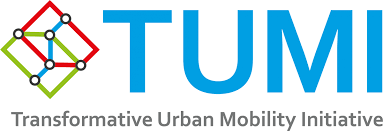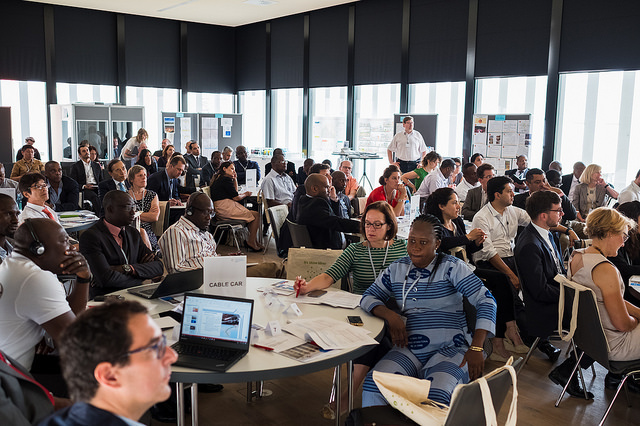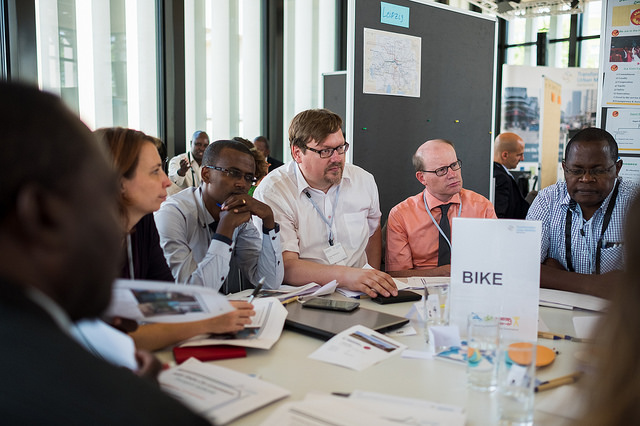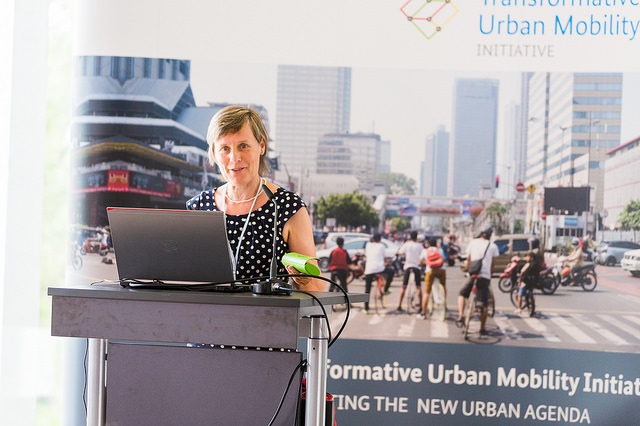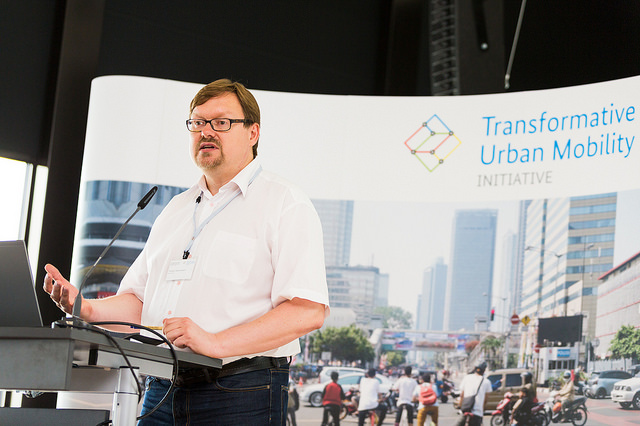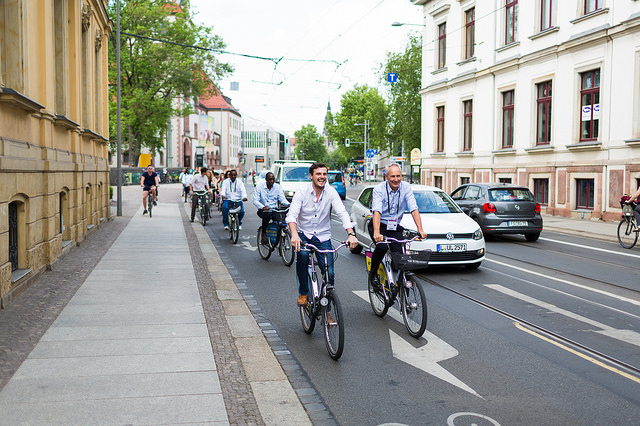More than 80 Transport Practitioners engaged in TUMI-Conference on Urban Mobility Governance at the side of the International Transport Summit 2017
The practitioner’s conference organized by the Transformative Urban Mobility Initiative and the city of Leipzig took place the past 31 May – 2 June 2017 in Leipzig, Germany as an official side event at the International Transport Forum 2017.
As part of the International Transport Summit 2017 in Leipzig, Germany, the practitoners conference organised by Transformative Urban Mobility Initiative (TUMI) with support from ICLEI – Local Governments for Sustainability followed the main theme of the 2017 ITF “Governance of Transport”. Sound transport governance plays a key role in improving the liveability of cities and mitigating climate change. More than 80 transport officials engaged in a conference for 2 days, highlighting the relevance and the potential of stronger collaboration on urban mobility governance in African Cities.
Under the umbrella of this year’s International Transport Forum (ITF) and its focus “Governance and Transport”, ICLEI’s EcoMobility team is hosting a session in the ITF program for urban transport practitioners, together with the German development ministry’s (BMZ’s) Transformative Urban Mobility Initiative (TUMI) and the City of Leipzig.
Some of the questions that where discussed during the diverse sessions where:
- Why is sustainable urban mobility important?
- What makes a good urban transport division?
- How can we improve the collaboration with other municipal bodies and national entities?
- How do we get political decision-makers on board?
- Where do we find supportive external and internal partners?
- How can we use digital innovation to tackle those challenges?
The practitioner’s conference started with a warm introduction from BMZ and ICLEI highlighting that the way that we do transport in cities now must change. Monika Zimmermann, Deputy Secretary General of ICLEI shared that “Access to sustainable mobility is a basic human right and this principle should be leading our planning and financing decisions”.
EcoMobility Alliance cities of Leipzig, Kaohsiung, Rosario and Buenos Aires attended and shared their experiences at the conference with the other transport officials from cities around the globe. Leipzig, as the host city for the practitioner’s conference, shared its experience as a historical transport and trade intersection point in Europe. It is the 11th time that the city hosts the International transport forum and is a good example for sustainable transport. The head of transport, Torben Heinemann shared its experience setting the scene for implementation of Sustainable Mobility Projects.
Rosario, Argentina presented political strategies for introducing change in the collective construction of the distribution of public space. With this vision of collective construction, Rosario carried out several projects as exclusive lanes for mass transportation, cycling infrastructure, implementation of a public bicycle system, among the most important. Also, a Mobility Monitoring Center and a pre-payment system with a multimodal card were implemented. All these actions were carried out with funds from international financing programs and with local funds.
Kaohsiung, represented by Ching-Fu Chen, Director General of the Transportation Bureau shared that “it is important to take ecomobility approach to enhance urban mobility” and made an open invitation to the sustainable transport community to attend the EcoMobility World Festival 2017 in October.
Buenos Aires, Argentina shared its Road Safety Plan and its Deputy Director, Pedro Scarpinelli, shared that “Developing safe and sustainable transport plans is vital for urban mobility”. The Road Safety Plan an Action Plan that focuses on:
- Safe infrastructure,
- Education,
- Enforcement and Legislation
- Public engagement
During the conference the urban planners and creative minds from entire Sub-Saharan Africa explored municipal transport governance, brought contrary and joint views of challenges and solutions and findings from up-to-date research to one table. Along the TUT-POL framework (Transforming Urban Transport – The Role of Political Leadership) of Harvard University, the participants took the perspectives on urban development and mobility governance of fellow planners and won insights as well as entry points for their local mobility challenges.
The event took place under the umbrella of the Transformative Urban Mobility Initiative (TUMI). The ambitious initiative was launched at HABITAT-III in Quito in October 2016 with ICLEI as a partner. TUMI combines the expertise and knowledge of all its partners and supports cities in developing countries and emerging economies in implementing sustainable urban mobility projects.



